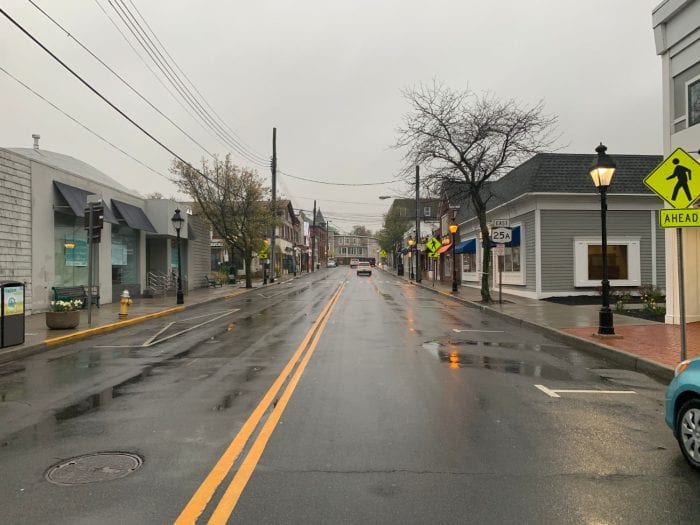When Quarantine Ends, the Clean Air Should Not
By Sapphire Perera
The COVID-19 pandemic has been a temporary solution for the climate crisis. For many years, people have sought out various approaches to bring down greenhouse gas emissions and improve the environment through renewable energy sources. However, the coronavirus pandemic has proved to be the most effective solution yet. The earth is finally being allowed to breathe. Many scientists are calling this pandemic a temporary solution to the climate crisis but I believe that we can continue to have air with lower carbon dioxide levels, water that is clear and clean and a healthy environment if we all worked hard to change our daily routine.

The COVID-19 started healing the environment in China: the most polluted country on earth. Due to the forced closings of factories, shut-downs of manufacturing plants and mandatory quarantines for its citizens, there were reductions in coal and crude oil usage. It resulted in a reduction in CO2 emissions of 25 percent or more, which is approximately six percent of total global emissions. Italy was the country next in line to feel the devastating effects of the coronavirus pandemic. However, with everyone in quarantine, Italy followed China in terms of environmental revival. In only a few months, the people of Venice were able to see the fish and the bottom of the canals that were once murky and polluted. In India, similar improvements were being seen. The beautiful snow-covered Himalayas were once hidden by smog but after months of quarantine and a strict curfew, they could be seen by the Jalandhar citizens from more than one hundred miles away; they claim that it’s the first time in 30 years that they’ve clearly seen the Himalayas.
These changes to the environment are being seen all across the world. However, once quarantine ends, the earth will be suffocated by humans once again. To prevent this, I believe that more time and resources should be invested in the search for permanent solutions that would ameliorate the climate crisis. In terms of individual change, I know that there are hundreds of ways for us to stop partaking in the activities that promote the oil industry and fossil fuel industry. For instance, we can stop using cruise ships and motorboats for personal entertainment. According to the 2016 Pacific Standard report, “each passenger’s carbon footprint while cruising is roughly three-times it would be on land”.
In addition to regulating our carbon footprint through marine activities, we can also start placing more emphasis on alternative sports that don’t require corporate culture producers who promote environmentally unfriendly functions and corporations. Also, while this last one might be a small change, it can have a great impact. This change requires us to use less of our private vehicles to get places, and more of the public transport system. Transport makes up about 72 percent of the transport sector’s greenhouse gas emissions. If public transportation is increased to the point that families are taking buses and trains more than their own cars, we might be able to significantly reduce the percentage of gas emissions that come from driving.
U.S. Rep. Alexandria Ocasio-Cortez’s (D-NY-14 Bronx) Green New Deal reinforces some of these ideas and has already shown results through the pandemic. Some proposals in the Green New Deal include high-speed rail, removing combustible engines from the road, upgrading all existing buildings, and retraining coal workers.
One very important aspect of this Green New Deal is to reduce air travel. Many people find that to be too drastic a step towards fixing climate change, but is it really? According to a Center for Biological Diversity report, airplanes will generate about forty-three gigatonnes of planet-warming pollution through 2050. But with the current travel restrictions and just a few months of limited air travel, we are seeing clouds of nitrogen dioxide begin to evaporate from places above Italy and China. In addition to being less dependent on air travel, we are now less dependent on the coal mining industries. This has resulted in a dramatic decrease in the employment of coal workers; over 34,000 coal mining jobs have disappeared in the U.S. in the past decade. Fortunately, the Green New Deal focuses on training the coal workers in occupations pertaining to renewable and clean energy, and infrastructure. By eliminating the coal mining industry we would be making great leaps in the fight against the climate crisis.
Ever since the green revolution, humanity has been taking more than they need from the environment. We have abused Earth’s natural resources and expanded into territories that were inhabited by other species. I hope that this coronavirus pandemic has shown us that humanity doesn’t have to behave like a virus. We don’t have to continue worsening the climate crisis but instead, we could learn from this pandemic and start implementing regulations such as limited air travel and increased public transportations. We can turn consumerism to conservation, capitalism to socialism, and industrialism to environmentalism.
Sapphire Perera is a junior at Port Jefferson high school. The “Turtle Island,” as the name for this ongoing column refers to the Native American mythology about North America existing on the back of a great turtle that bears every living being on its spine.







